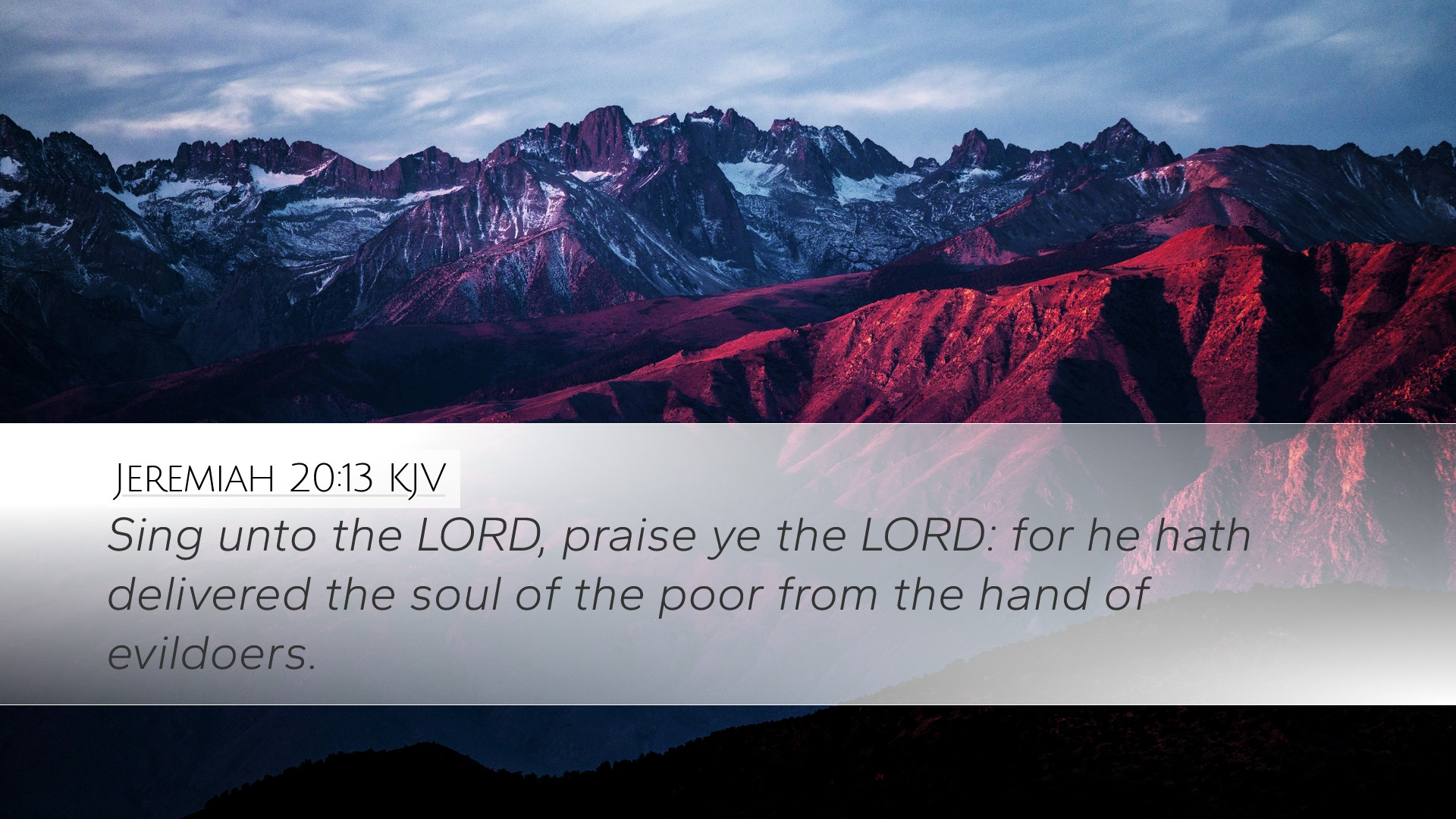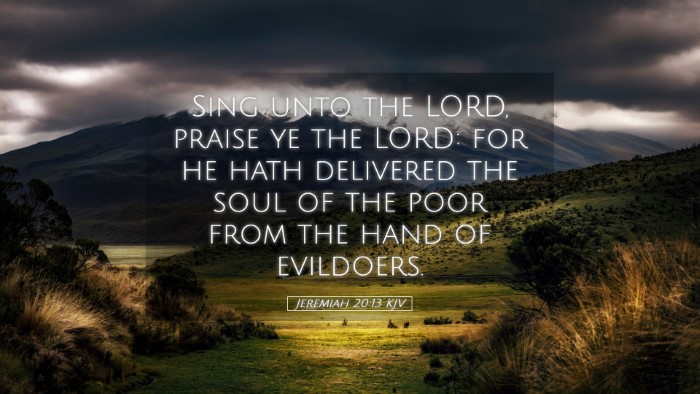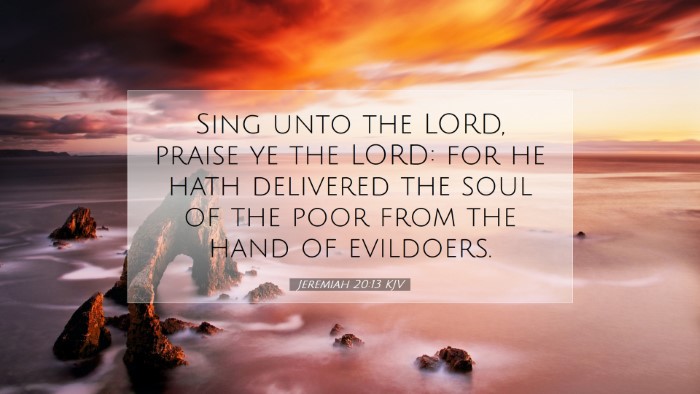Commentary on Jeremiah 20:13
Jeremiah 20:13 states, "Sing unto the Lord, praise ye the Lord: for he hath delivered the soul of the poor from the hand of evildoers." This verse resonates deeply within the context of prophetic literature and reflects the profound themes of deliverance and divine justice as experienced by the prophet himself.
Context and Background
The Book of Jeremiah captures the tumultuous life of the prophet Jeremiah, who is often called the "Weeping Prophet" due to his sorrow over the impending judgment upon Judah. In Chapter 20, we find Jeremiah suffering not only psychological distress but also social rejection due to the prophetic messages he delivers. This verse serves as a pivotal moment of praise amidst his trials.
Mood of Despair to Praise
Jeremiah's journey throughout this chapter transitions from deep despair to a declaration of praise. As Adam Clarke notes, there is a significant contrast between Jeremiah's lamentations and his subsequent call to praise God.
- Mood Swings of the Prophet: Clarke highlights that despite being physically threatened and emotionally burdened by the rejection of his own people, Jeremiah leans on God's faithfulness for strength.
- The Power of Praise: Matthew Henry suggests that praise is an act of faith, recognizing that even in dire circumstances, God has provided deliverance.
Theological Reflections
This verse encapsulates key theological concepts that are central to understanding the nature of God and His relationship with humanity, especially in times of distress.
Divine Deliverance
In the phrase "for he hath delivered the soul of the poor from the hand of evildoers," we see a clear assertion of God's action on behalf of the needy and oppressed. Barnes elucidates that this deliverance highlights God's commitment to justice and care for the vulnerable.
- God as Deliverer: This aligns with the broader biblical narrative where God is depicted as a deliverer of His people, reflecting His mercy and commitment to uphold justice.
- The Role of the 'Poor': The 'poor' here can be understood both literally and metaphorically, as it may represent those who are oppressed or marginalized, highlighting God’s advocacy for social justice.
Praise as a Response to Deliverance
Consequently, Jeremiah's call to sing and praise underscores an essential response of believers to God's faithfulness. Henry articulates that praise is a natural product of recognizing God’s interventions in human lives.
- The Importance of Praise: Praise reinforces the identity of the faithful and acknowledges God's sovereignty over their circumstances.
- Community Aspects of Praise: By instructing others to sing and praise, Jeremiah invites the community to share in the acknowledgment of God’s goodness, thus fostering collective worship.
Practical Implications for Believers
For pastors, students, theologians, and Bible scholars, Jeremiah 20:13 provides significant implications for personal faith journeys and the corporate life of the church.
Encouragement in Trials
This verse encourages believers facing trials to turn towards God in praise, no matter their circumstances. Barnes emphasizes that even when we feel under pressure or attacked, we can find hope in God's faithfulness.
- Faith Over Fear: Jeremiah's shift from despair to praise serves as a model for believers to choose faith over fear, trusting in God’s past deliverances.
- The Power of Testimony: Sharing testimonies of God’s deliverance can uplift and strengthen community faith.
Call to Action for the Church
The church is called to be a beacon of hope and praise amidst societal troubles. Reflecting on this verse, Clarke notes that congregations should actively engage in acts of worship and service that highlight God’s work in the world.
- Engagement with the Poor: The church is urged to advocate for justice, particularly for the poor and marginalized, reflecting God's concern as seen in this verse.
- Creating Worshipful Environments: Churches should foster environments where praising God becomes central, encouraging communal singing and shared testimonies of His grace.
Conclusion
Jeremiah 20:13 not only reflects the burdens of the prophet but also serves as a powerful reminder of God’s faithfulness and the importance of praise in the life of every believer. In a world fraught with difficulties, this verse is a clarion call to the faithful to recognize God’s past deliverance and respond in worship, echoing the theological truths upheld by commentators like Matthew Henry, Albert Barnes, and Adam Clarke.
Through study and reflection on this verse, believers are equipped to navigate their own trials with a heart of faith and a spirit of praise.


